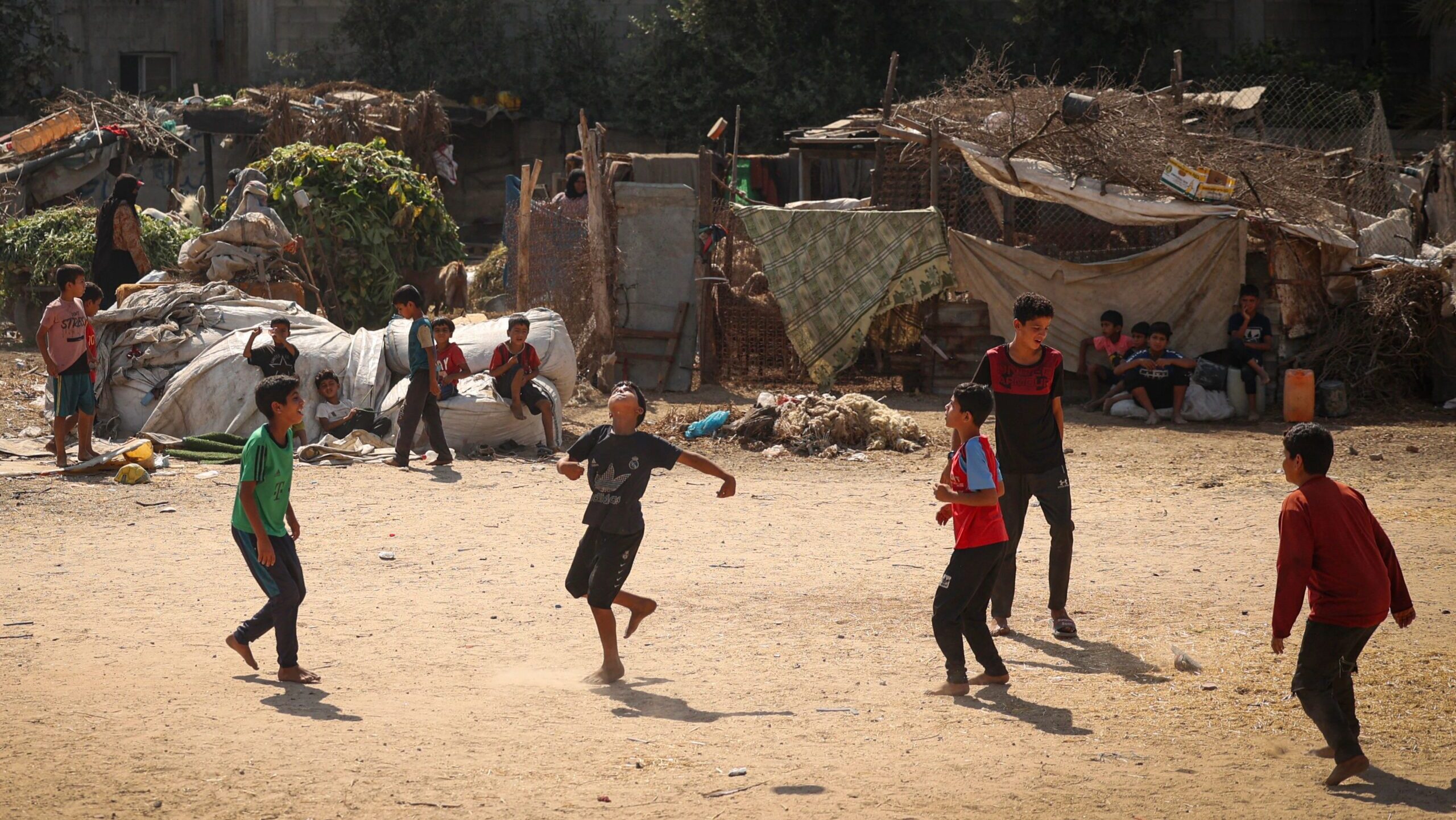IMF: Prospects for Palestinian Economy Remain ‘Bleak’
In its latest report, the International Monetary Fund says the volatile political and security situation, along with Israel's withholding of tax funds and lackluster international support, has created "an increasingly difficult environment"
An International Monetary Fund report published in late August has painted a grim picture of the Palestinian economy.
“The outlook for the Palestinian economy remains bleak amid a volatile political and security situation, with downside risks persisting,” the report said. “Together with lower regional growth, the increasingly difficult environment is weighing on both the supply and demand side of the economy.”
The report said growth had rebounded in 2021 after the pandemic but had then halved to 3.9% in 2022 and was expected to decline further to 3% in 2023.
“Projections point to a gradual reduction of per capita incomes over the medium term amid a continued widening of the already large gap in living standards between the West Bank and Gaza. … Persistently high unemployment and poverty add to fragilities and social tensions,” the report said.
Achieving higher economic growth requires coordinated efforts from the PA, Israel, and the international community
It said that key factors contributing to the difficulties were Israel’s withholding of tax revenues “as well as the persistently lackluster support from the international community.”
“Achieving higher economic growth requires coordinated efforts from the PA, Israel, and the international community. Boosting economic growth and improving Palestinian employment and real incomes hinges critically on the easing of Israeli-imposed restrictions on movement, access, and investment—including in Area C—and opening up of Gaza,” the report said.
Over the past year, the Palestinian territories have suffered deteriorating economic and financial conditions, and the Palestinian Authority has been struggling to pay the salaries of its more than 150,000 civil employees.
Ramallah-based economic analyst Dr. Thabit Abo Al Ros told The Media Line that the report reflects the current economic situation around the world.
“The Palestinian economy, like the economies of other countries in the world, is suffering from a large deterioration in terms of high inflation. In addition, there are still difficulties in supply chains,” Abo Al Ros said. “This led to a slowdown in growth, and the Palestinian economy is not isolated from the economies of the world.”
There’s no doubt that the economic conditions are difficult, the PA is in financial deficit
Dr. Nasr Abdel Kareem, a professor of finance and economics in the Graduate Studies Department at the Arab American University in Ramallah, told The Media Line this is the weakest period for the PA since its inception.
“There’s no doubt that the economic conditions are difficult, the PA is in financial deficit, and it’s not new. It is going through a crisis, caused by two things, the first is the position of the Israeli government and its policy towards the Palestinian people, and the second is the position of the international community,” Abdel Kareem said. “It is clear that for almost the last decade, aid from the international community to the Palestinians has been very scarce, even from our Arab brothers.”
Abdel Kareem expressed doubts as to whether the Palestinian economy would ever be self-sufficient.
“In order for the Palestinian economy to be prosperous, the dependency on Israel and restrictions on the Palestinian economy must be removed,” he said.
The report stated that recent steps taken by Israel might help the Palestinians, but these were not enough.
“The government of Israel’s recently adopted measures, including expanding the door-to-door trade program and increasing the number of permits for Palestinians from both the West Bank and the Gaza Strip to work in Israel, are welcome modest steps, but more measures are needed,” the report said.
Israel collects tax funds on behalf of the PA, including customs duties, which account for more than 60 percent of its annual revenues. These are supposed to be transferred to Ramallah monthly. However, Israel been deducting millions of dollars per month, citing the PA’s cash payments to Palestinians and their families who attacked Israelis.
The IMF said that the overriding challenge is the ability of the PA to revive growth and its willingness to implement political reforms in the face of declining resources.
The PA was dealt a massive blow to its economy in 2017, when then-US President Donald Trump cut off nearly all US aid. Trump’s successor, President Joe Biden, has resumed some of the funding, but US laws prohibit direct aid to the PA.
The report said that one bright spot was that the Palestinian banking sector has largely escaped the economic crisis.
“The banking sector has remained broadly resilient, with adequate system-wide capital and liquidity buffers. However, early signs of asset quality deterioration are emerging, and continued vigilance is required in view of rising interest rates and accumulating domestic PA arrears,” the report said.
Abo Al Ros echoed this.
“All indications indicate that the Palestinian economy is heading towards the worst, but the banking sector is still solid and strong, but it is temporary as a result of the bank’s profits as a result of a rise in interest rates,” he said. “The political conditions are directly reflected in the economic situation. If the current political situation is not remedied, it will have future repercussions on the economy.”


